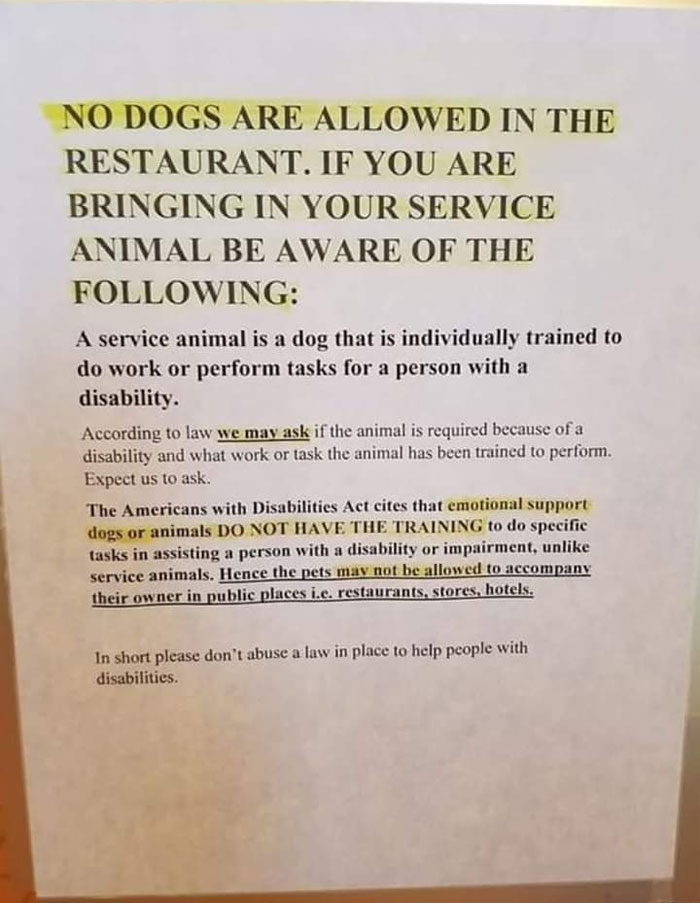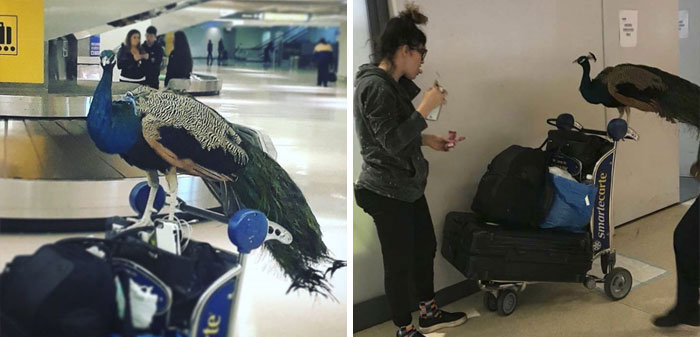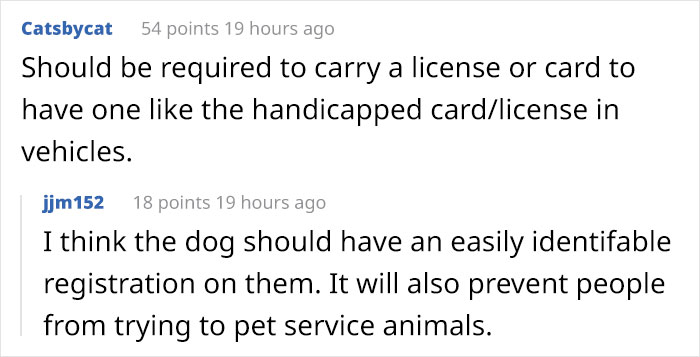Recently, one restaurant put up a sign, saying it doesn’t allow emotional support animals. It caused quite a stir online, with some people admiring the bold move and others saying it’s not something the restaurant has control over. However, there’s something we need to discuss before you choose whose side you’re on.
First, let’s get something straight. An emotional support animal is not a service animal. The Americans with Disabilities Act defines service animals as dogs or small horses that are trained to perform specialized tasks, for example leading a blind person or detecting seizures. They must be allowed in restaurants, stores, and other public places. Emotional support animals, on the other hand, provide comfort with their presence but usually have no special training.
To promote a pet to the status of an “emotional support animal”, or ESA, all a person needs is a therapist’s letter asserting the animal contributes to their psychological wellbeing. There are for-profit websites, known among some psychologists as “ESA mills”, that will facilitate a quick and dubious disability appraisal by a clinician over the phone or via a web survey to those who do not have a therapist, too.
And while ESAs aren’t legally allowed to venture everywhere in public with their owners (only service animals have that right), they do come with perks. Equipped with a therapist’s letter, its owner may move their pet into an animal-free apartment or dormitory, and fly with their pet in a plane’s cabin for free.

Image credits: Ineedtherapy
Fortunately for those who wish to abuse the law, there is a lot of confusion surrounding these technicalities. Nothing can stop them from lying or using the terms “service animal” and “ESA” interchangeably. “The majority of folks who slap a vest on their pet have already crossed that line,” Ryan Honick, 33, whose service labrador, Pico, helps him with myriad daily tasks told The Guardian. “The easiest giveaway is behavior. A trained service animal is going to behave unobtrusively and professionally. If those things aren’t happening, odds are high the animal is fraudulent.”
While no organization keeps track of the actual number of emotional support animals, a study from the University of California at Davis determined the number of ESAs registered by animal control facilities in the state increased 1,000% between 2002 and 2012.

Image credits: dexterthepeacock
According to The New York Times, some people who require Seeing Eye dogs have reported that their animals have been attacked in airports or restaurants by untrained emotional support dogs. The explosion in support animals has led to more skepticism of true service dogs as not all handlers can keep them under control.
Of course, not every ESA is a walking threat, but in 2018, Delta Air reported an 84% surge in animal incidents since 2016. Those include urination, defecation, and biting. There have also been media reports of emotional support peacocks starting pandemonium in airports, comfort hamsters getting flushed in a frenzy, and so on.
As a result, more than two dozen state legislatures have already enacted new laws to crack down on fraud. For example, Utah has just passed a law that makes it a misdemeanor to lie about a pet being an emotional support animal, and Oklahoma clarified that restaurants and stores have a right to keep ESAs out.
So, coming back to the restaurant sign. Do you support the establishment?

Image credits: mark_essig
Here’s what people said about this

















from Bored Panda http://bit.ly/33BIgQB
via Boredpanda